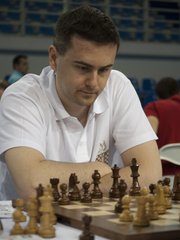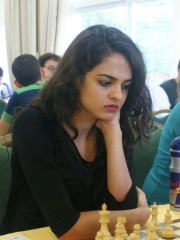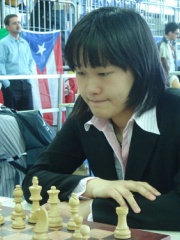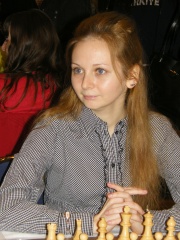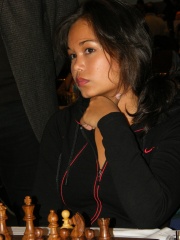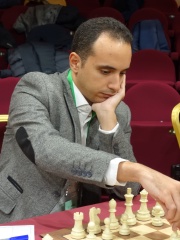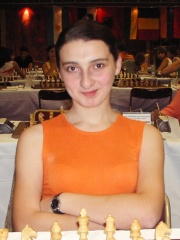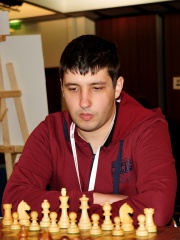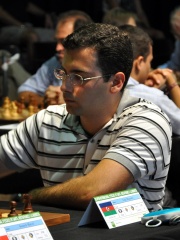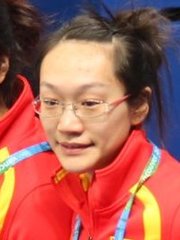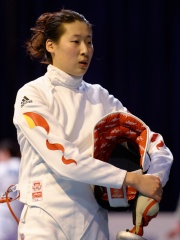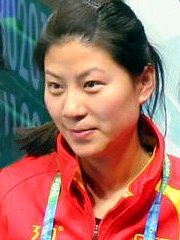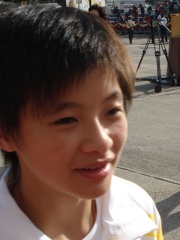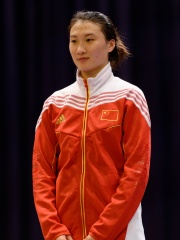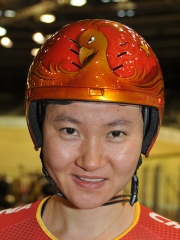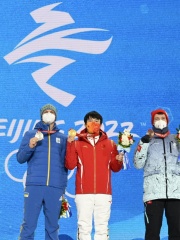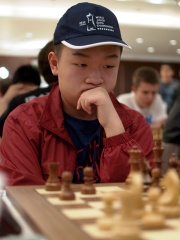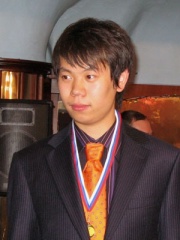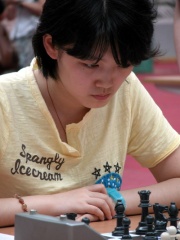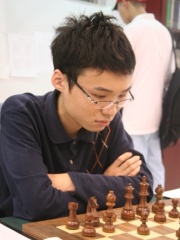Chess Player
Ni Hua
1983 - today
EN.WIKIPEDIA PAGE VIEWS (PV)

 Ni Hua
Ni Hua
Ni Hua (born May 31, 1983 in Shanghai) is a Chinese chess grandmaster and the national team captain. He is three-time national champion. In 2003, he became China's 15th Grandmaster at the age of 19. In April 2008, Ni Hua and Bu Xiangzhi both became the second and third Chinese players to pass the 2700 Elo rating mark, after Wang Yue. Read more on Wikipedia
His biography is available in 17 different languages on Wikipedia. Ni Hua is the 442nd most popular chess player (down from 412th in 2024), the 1,625th most popular biography from China (down from 1,519th in 2019) and the 18th most popular Chinese Chess Player.
Memorability Metrics
Page views of Ni Hua by language
Among Chess Players
Among chess players, Ni Hua ranks 441 out of 461. Before him are Bartłomiej Macieja, Tania Sachdev, Mateusz Bartel, Zhao Xue, and Erald Dervishi. After him are Nadezhda Kosintseva, Arianne Caoili, Bassem Amin, Salome Melia, Constantin Lupulescu, Alexander Ipatov, and Nidjat Mamedov.
Most Popular Chess Players in Wikipedia
Go to all RankingsBartłomiej Macieja
1977 - Present
HPI: 37.31
Rank: 436
Tania Sachdev
1986 - Present
HPI: 37.27
Rank: 437
Mateusz Bartel
1985 - Present
HPI: 37.22
Rank: 438
Zhao Xue
1985 - Present
HPI: 37.12
Rank: 439
Erald Dervishi
1979 - Present
HPI: 37.12
Rank: 440
Ni Hua
1983 - Present
HPI: 37.06
Rank: 441
Nadezhda Kosintseva
1985 - Present
HPI: 36.94
Rank: 442
Arianne Caoili
1986 - 2020
HPI: 36.94
Rank: 443
Bassem Amin
1988 - Present
HPI: 36.92
Rank: 444
Salome Melia
1987 - Present
HPI: 36.84
Rank: 445
Constantin Lupulescu
1984 - Present
HPI: 36.70
Rank: 446
Alexander Ipatov
1993 - Present
HPI: 36.64
Rank: 447
Nidjat Mamedov
1985 - Present
HPI: 36.61
Rank: 448
Contemporaries
Among people born in 1983, Ni Hua ranks 1,414. Before him are Edwin Encarnación, Thiago dos Santos Costa, Michael Kraus, Chang Yongxiang, Cindy Busby, and Kaitlin Sandeno. After him are Devin Harris, Sho Gokyu, Monique Henderson, Mikk Pahapill, Shinobu Ito, and Monique Adamczak.
Others Born in 1983
Go to all RankingsEdwin Encarnación
BASEBALL PLAYER
1983 - Present
HPI: 37.14
Rank: 1,408
Thiago dos Santos Costa
SOCCER PLAYER
1983 - Present
HPI: 37.10
Rank: 1,409
Michael Kraus
HANDBALL PLAYER
1983 - Present
HPI: 37.10
Rank: 1,410
Chang Yongxiang
ATHLETE
1983 - Present
HPI: 37.09
Rank: 1,411
Cindy Busby
ACTOR
1983 - Present
HPI: 37.09
Rank: 1,412
Kaitlin Sandeno
SWIMMER
1983 - Present
HPI: 37.08
Rank: 1,413
Ni Hua
CHESS PLAYER
1983 - Present
HPI: 37.06
Rank: 1,414
Devin Harris
BASKETBALL PLAYER
1983 - Present
HPI: 37.05
Rank: 1,415
Sho Gokyu
SOCCER PLAYER
1983 - Present
HPI: 37.03
Rank: 1,416
Monique Henderson
ATHLETE
1983 - Present
HPI: 37.03
Rank: 1,417
Mikk Pahapill
ATHLETE
1983 - Present
HPI: 37.02
Rank: 1,418
Shinobu Ito
SOCCER PLAYER
1983 - Present
HPI: 37.02
Rank: 1,419
Monique Adamczak
TENNIS PLAYER
1983 - Present
HPI: 37.01
Rank: 1,420
In China
Among people born in China, Ni Hua ranks 1,625 out of NaN. Before him are Zhou Yan (1982), Zhang Xi (1985), Li Wenquan (1986), Zhao Xue (1985), Zhu Qinan (1984), and Chang Yongxiang (1983). After him are Sun Yujie (1992), Liu Yin (1981), Wang Xin (1992), Xu Anqi (1992), Zhong Tianshi (1991), and Qi Guangpu (1990).
Others born in China
Go to all RankingsZhou Yan
POLITICIAN
1982 - Present
HPI: 37.24
Rank: 1,619
Zhang Xi
POLITICIAN
1985 - Present
HPI: 37.20
Rank: 1,620
Li Wenquan
ATHLETE
1986 - Present
HPI: 37.18
Rank: 1,621
Zhao Xue
CHESS PLAYER
1985 - Present
HPI: 37.12
Rank: 1,622
Zhu Qinan
ATHLETE
1984 - Present
HPI: 37.09
Rank: 1,623
Chang Yongxiang
ATHLETE
1983 - Present
HPI: 37.09
Rank: 1,624
Ni Hua
CHESS PLAYER
1983 - Present
HPI: 37.06
Rank: 1,625
Sun Yujie
FENCER
1992 - Present
HPI: 37.05
Rank: 1,626
Liu Yin
POLITICIAN
1981 - Present
HPI: 37.03
Rank: 1,627
Wang Xin
ATHLETE
1992 - Present
HPI: 37.01
Rank: 1,628
Xu Anqi
FENCER
1992 - Present
HPI: 36.99
Rank: 1,629
Zhong Tianshi
CYCLIST
1991 - Present
HPI: 36.98
Rank: 1,630
Qi Guangpu
ATHLETE
1990 - Present
HPI: 36.96
Rank: 1,631
Among Chess Players In China
Among chess players born in China, Ni Hua ranks 18. Before him are Zhang Zhong (1978), Li Chao (1989), Wei Yi (1999), Wang Hao (1989), Bu Xiangzhi (1985), and Zhao Xue (1985). After him are Ruan Lufei (1987), Lei Tingjie (1997), Shen Yang (1989), Yu Yangyi (1994), and Guo Qi (1995).
Zhang Zhong
1978 - Present
HPI: 43.09
Rank: 12
Li Chao
1989 - Present
HPI: 41.38
Rank: 13
Wei Yi
1999 - Present
HPI: 40.53
Rank: 14
Wang Hao
1989 - Present
HPI: 40.42
Rank: 15
Bu Xiangzhi
1985 - Present
HPI: 39.01
Rank: 16
Zhao Xue
1985 - Present
HPI: 37.12
Rank: 17
Ni Hua
1983 - Present
HPI: 37.06
Rank: 18
Ruan Lufei
1987 - Present
HPI: 36.46
Rank: 19
Lei Tingjie
1997 - Present
HPI: 35.46
Rank: 20
Shen Yang
1989 - Present
HPI: 35.28
Rank: 21
Yu Yangyi
1994 - Present
HPI: 35.15
Rank: 22
Guo Qi
1995 - Present
HPI: 31.36
Rank: 23
